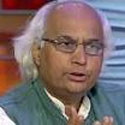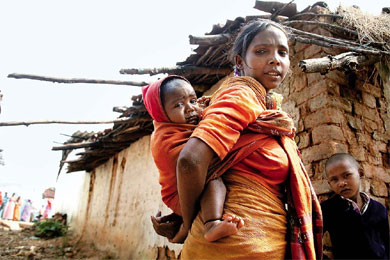
By Sudheendra Kulkarni
August 03, 2015
I am a devout Hindu. My Hinduism urges me to not only admit to the shortcomings in my own religion, but also to respectfully acknowledge and unhesitatingly learn from what is good in other religions. In this I try to be guided by the edict propounded by Mahatma Gandhi: “Magnify your own faults a thousand fold, and close your eyes to the faults of neighbours.” Gandhi believed that following this ethic would lead to the actualisation of dharma, the divine core common to all faiths.
Hence, at a time when official India, after a long slumber of denial, has woken up to the harsh realities of poverty and wealth inequality brought to light by the Socioeconomic and Caste Census (SECC) earlier this month, I am pained to see that few prominent Hindu religious leaders have deemed it their duty to comment on it. Even though poor Hindus constitute the majority among the Indian poor, Hindu religious leaders are not very vocal about poverty in India, much less about global poverty. Have we ever heard the Ashok Singhals and Praveen Togadias of the Vishwa Hindu Parishad (VHP) speak about poverty and the egregious wealth divide as evidence of unacceptable economic injustice that is against the basic teachings of Hinduism? No. Their priority, it seems, is to make India a ‘Hindu Rashtra’, pursuing a divisive agenda that actually seeks to de-emphasise any anti-poverty agenda.
Admirably, I must hasten to add, many Hindu bodies like the Ramakrishna Mission, ISKCON, Sathya Sai Ashram, Mata Amrithanandamayi’s establishment, and even the Vanvasi Kalyan Ashram (of the RSS) undertake projects to heal the sick, educate the poor and feed the needy. However, their functionaries neither speak out on the political economy of poverty in our society nor demand systemic solutions.
Contrast this with how Pope Francis has made the campaign against global poverty and rampant economic injustice the highest priority of his papacy. Today, his is the most widely heard, also the most morally indignant, voice against this curse. No head of government, no political leader, no economist and no ideologue comes close to him in making the war on poverty the centrepiece of global debate and action. He hasn’t been just talking about poverty, but has brought an activist’s, nay warrior’s, sense of urgency and resolve to the mission.
Soon after becoming Pope in March 2013, he said, “Poverty in the world is a scandal. In a world where there is so much wealth, so many resources to feed everyone, it is unfathomable that there are so many hungry children, that there are so many children without an education.” He was addressing a gathering of students from Albania, the poorest country in Europe. “I tell all you young persons: don’t let yourselves be robbed of hope. Please, don’t let it be stolen from you. The worldly spirit, wealth, the spirit of vanity, arrogance, and pride...all these things steal hope. Poverty calls us to sow hope.”
He then posed a question: “Where do I find hope?” His answer: “In the poor Jesus—Jesus who made himself poor for us. We all have to think if we can become a little poorer, in order to be more like Jesus, who was the Poor Teacher.”
Voluntary poverty is exalted in all religious traditions. All the revered prophets, saints and mahatmas lived a life of minimum material wants, thereby demonstrating that simple living is a prerequisite for the pursuit of a genuinely richer life. True, the Pope has not yet succeeded in ending the pomp and opulence at the Vatican, the richest religious establishment in the world, nor succeeded fully in his fight against corruption in its financial management. But he has set an example for others by choosing to live in a modest quarter, just as he did previously in his native Argentina. (In Buenos Aires, he cooked for himself, took care of the handicapped, and rode the bus to work.) He has repeatedly said he wants the Church to be poor, and for the poor. Because of this, his tirade against poverty has become credible and forceful.
In his very first Apostolic Exhortation in November 2013, Pope Francis raised the hackles of the votaries of unbridled capitalism by denouncing the “autonomy of the marketplace” as a new form of tyranny, in which “widespread corruption and self-serving tax evasion” have taken on worldwide dimensions. “Just as the commandment ‘Thou shalt not kill’ sets a clear limit in order to safeguard the value of human life, today we also have to say ‘Thou shalt not’ to an economy of exclusion and inequality. Such an economy kills.” The Pope has since reiterated this radical economic thought on numerous occasions.
On July 9 this year, the ‘Poor Man’s Pope’ visited the poorest country in Latin America, Bolivia, where Che Guevara, the iconic Marxist leader of the Cuban revolution, had been killed by CIA-supported mercenaries in 1967. In words that would have gladdened Che, the Pope said in a Mass: “Human beings and nature must not be at the service of money. Let us say No to an economy of exclusion and inequality, where money rules, rather than service. That economy kills. That economy excludes. That economy destroys Mother Earth. The first task is to put the economy at the service of peoples.”
What is distinctive, and highly laudable, about the Pope’s battle against global poverty is that he is linking it to one of its main causative factors—climate change—and also linking climate change to the rapaciousness and short-sightedness of capitalism. Concern for the health of Mother Earth, and hence concern over the calamitous changes in the ‘human ecology’ being effected by climate change, are integrally linked in his worldview. In a landmark 40,000-word Encyclical (statement of papal teaching) titled ‘On Care for Our Common Home’, which he released last month, he has stressed how global warming is impacting the poorest and most vulnerable people around the world. He has appealed to the collective conscience of the global economic and political elite to “integrate questions of justice in debates on the environment, so as to hear both the cry of the Earth and the cry of the poor.”

Photograph by Sanjay Rawat
At the risk of being criticised by some of his own colleagues, such as George Pell, an Australian cardinal and finance chief of the Vatican, Pope Francis has urged the world’s wealthy nations to pay their “grave social debt” to the poor. He has reproached the rich that their “cheerful recklessness”, made worse by 200 years of misuse of earth’s resources, is spelling doom to our “common home”, which is already beginning to resemble a “pile of filth”.
Echoing Gandhiji’s ‘Need versus Greed’ warning, the Pope states: “Since the market tends to promote extreme consumerism in an effort to sell its products, people can easily get caught up in a whirlwind of needless buying and spending.” Here, we cannot help but notice the contradiction between the Pope’s castigation of “compulsive consumerism” and the dogma that has gripped dominant economies all around the world (including India)—namely, that consumerism is good for ‘growth’. The fact that what they call ‘growth’ is a morally, socially and ecologically cancerous growth hardly bothers them. The dangers they refuse to see are pointed out in the Pope’s Encyclical on Climate Change: “The current global situation engenders a feeling of instability and uncertainty, which in turn becomes a seedbed for collective selfishness. When people become self-centred and self-enclosed, their greed increases. The emptier a person’s heart is, the more he or she needs things to buy, own and consume. It becomes almost impossible to accept the limits imposed by reality. In this horizon, a genuine sense of the common good also disappears. As these attitudes become more widespread, social norms are respected only to the extent that they do not clash with personal needs. So our concern cannot be limited merely to the threat of extreme weather events, but must also extend to the catastrophic consequences of social unrest. Obsession with a consumerist lifestyle, above all, when few people are capable of maintaining it, can only lead to violence and mutual destruction.”
By cautioning against the clear and present danger of violence and mutual destruction, and by making a compelling case for a pro-poor and low-carbon reorientation of the global economy, the Pope has set the agenda for the crucial United Nations climate talks due in Paris this December, when world leaders will try to reach a new agreement aimed at reducing greenhouse gases. One of the specific anti-poverty measures Pope Francis has been demanding these days is that governments must accept the three Ls—labour, lodging, land—as the fundamental rights of the poor.
Hindu religious leaders, with the partial exception of Sri Sri Ravi Shankar, have also remained silent and inactive on another major contributor to global poverty: wars, violent conflicts and forced displacements. Papal pronouncements and actions on this issue have been exemplary. In September 2013, I had an opportunity to have an audience with the Pope at the Vatican, along with other participants in an inter-faith meet for world peace organised in Rome by the Community of Sant’Egidio. He told us: “We can never be resigned in face of the pain of entire populations, hostages of war, of misery, of exploitation. We cannot be indifferent and impotent in face of the drama of children, families, elderly affected by violence.” He asked us to “pray for peace in the world, in Syria, in the Middle East.... This courage of peace gives the courage of hope in the world, to all those who suffer because of war.”
The Pope has had some significant successes in his quiet efforts in conflict resolution. When I was in Havana in June, many Cubans I spoke to praised the Latin Pope’s hidden hand behind the historic handshake between presidents Barack Obama and Raul Castro in March this year. The subsequent restoration of the diplomatic ties between the US and Cuba, marking a non-violent end to a hostility that lasted over a half century, is one of the hope-promoting developments in world politics. A grateful Raul Castro—his decision to accept America’s hand of detente was endorsed by his older brother Fidel Castro, the architect of the revolution in Cuba—went to thank Pope Francis at the Vatican in May. He even said he was so impressed by the pontiff that he, a Communist, was considering a return to the Catholic Church’s fold.
I strongly believe that Hindu religious leaders should emulate the Pope and place their full weight behind worldwide religious leaders’ collective protest, advocacy and action on ending poverty, socioeconomic injustice and inequality, ending environmental degradation, and also ending wars and violent conflicts.
And, finally, an appeal to Prime Minister Narendra Modi: Please invite Pope Francis to visit India. The world’s largest democracy should honour this foremost peacemaker and change-agent in today’s world. His visit will no doubt strengthen Hindu-Christian harmony. Moreover, the Pope too would surely learn a few new things about the spiritual richness of Hinduism and the splendour of India’s multi-faith civilisation, whose highest ideals are peace, harmony, and human dignity and welfare.
Sudheendra Kulkarni was an aide to former prime minister Atal Behari Vajpayee.
Source:outlookindia.com/article/the-flowers-of-papa-francesco/294917




 Moderate Islamist here
Moderate Islamist here


0 comments:
Post a Comment